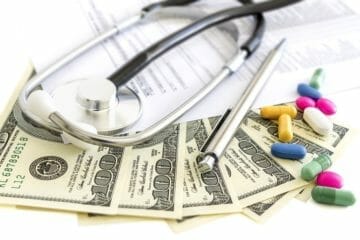Health Screenings for Women
 Whether you’re 18 or 88, there are certain health screenings every woman should have. A woman’s health depends on many factors. Every woman should make time for healthy habits — regular exercise, stress management, eating the right foods — and she should also be scheduling routine health screenings so potential problems can be detected early. In fact, health screenings can make keeping tabs on your health simple.
Whether you’re 18 or 88, there are certain health screenings every woman should have. A woman’s health depends on many factors. Every woman should make time for healthy habits — regular exercise, stress management, eating the right foods — and she should also be scheduling routine health screenings so potential problems can be detected early. In fact, health screenings can make keeping tabs on your health simple.
You and your doctor will discuss what you need during your visit.
The following list is a good place to start:
BLOOD PRESSURE
- Starting at age 18, every woman needs to have her blood pressure
checked at least every two years - Have your blood pressure checked once a year. If the top number (systolic number) is between 120 and 139 or the bottom number (diastolic number) is between 80 and 89 mm Hg or higher, have it checked every year.
- Watch for blood pressure screenings in your area. Ask your provider if you can stop in to have your blood pressure checked. You can also check your blood pressure using the automated machines at local grocery stores and pharmacies.
- If the top number is greater than 140, or the bottom number is greater than 90, schedule an appointment with your provider.
- If you have diabetes, heart disease, kidney
problems, or certain other conditions,
you may need to have your blood pressure
checked more often.
CHOLESTEROL
- Begin cholesterol screening between the ages of 40 to 45.
- Once cholesterol screening has started, your cholesterol should be checked every 5 years.
- If you have high cholesterol levels, diabetes, heart disease, kidney problems, or certain other conditions, you may need to be checked more often.
DIABETES
- If you are over age 44, you should be screened every 3 years.
- If you are overweight, ask your provider if you should be screened at a younger age. Asian Americans should be screened if their BMI is greater than 23.
- If you have a family history or other risk factors for diabetes, your provider may test your blood sugar level for diabetes.
COLON CANCER
If you are under age 50, you should be screened if you have a strong family history of colon cancer or polyps. Screening may also be considered if you have risk factors such as a history of inflammatory bowel disease or polyps.
If you are between ages 50 to 75, you should be screened for colorectal cancer. There are several screening tests available. Some common screening tests include:
- A fecal occult blood test done every year.
- Flexible sigmoidoscopy every 5 years along with a fecal occult blood test every 3 years.
- Colonoscopy every 10 years. You may need a colonoscopy more often if
you have risk factors for colon cancer, such as:
• Ulcerative colitis.
• A personal or family history of colorectal cancer.
BREAST EXAM
- Women may do a monthly breast self-exam. However, experts do not agree about the benefits of breast self-exams in finding breast cancer or saving lives. Talk to your provider about what is best for you.
- You should contact your provider immediately if you notice a change in your breasts, whether or not you do self-exams.
- Your provider may do a clinical breast exam as part of your preventive exam.
MAMMOGRAM
- Women ages 40 to 49 may have a mammogram every 1 to 2 years. However, not all experts agree about the benefits of having a mammogram when women are in their forties. Talk to your provider about what is best for you.
- Women ages 50 to 75 should have a mammogram every 1 to 2 years depending on their risk factors, to check for breast cancer.
- Women with a mother or sister who had breast cancer at a younger age should consider yearly mammograms. They should begin earlier than the age at which their youngest family member was diagnosed.
OSTEOPOROSIS
- All women over age 50 with fractures should have a bone density test (DEXA scan).
- If you are under age 65 and have risk factors
for osteoporosis, you should be screened.
PELVIC EXAM AND PAP SMEAR
- You should have a Pap smear every 3 years. If you have both a Pap smear and human papilloma virus (HPV) test, you may be tested every 5 years. HPV is the virus that causes genital warts and cervical cancer.
- Your provider may do pelvic exams more often if you develop problems.
- If you have had your uterus and cervix removed (total hysterectomy), and you have not been diagnosed with cervical cancer, you do not need to have Pap smears.
- Women who are sexually active and at high risk should be screened for chlamydia and gonorrhea. Your provider may talk with you about testing for other infections.
- Your provider will ask you questions about alcohol and tobacco, and may ask you about depression.
LUNG CANCER
The U.S. Preventive Services Task Forcerecommends annual screening for lung cancer with low-dose computed tomography in adults aged 55 to 80 years who:
- Have a 30 pack-year smoking history AND
- Currently smoke or have quit within the past 15 years
BODY MASS INDEX (BMI)
For people who are considered obese (BMI greater than or equal to 30) or those who are overweight (BMI of 25 to 29.9) and have two or more risk factors, the guidelines recommend weight loss. Even a small weight loss (just 10 percent of your current weight) will help to lower your risk of developing diseases associated with obesity. Mammograms, blood glucose tests, and Pap smears — these are just a few of the health exams that are essential to a woman’s health. Is it time for you to schedule one of these screenings? Call your physician today!
Routine Health Screenings For Men
 When it comes to men and health care, the numbers don’t lie:
When it comes to men and health care, the numbers don’t lie:
According to the Centers for Disease Control, compared to women, men are 24 percent less likely to visit their doctors in any given year and 22 percent less likely to get their cholesterol checked. They’re also less willing to be screened for cancer, despite the fact that their cancer mortality (death) rates are higher.
Skipping important health tests could be a matter of life and death, especially for men. Men should not ignore these essential routine screenings.
BLOOD PRESSURE
- Have your blood pressure checked once a year. If the top number (systolic number) is between 120 and 139 or the bottom number (diastolic number) is between 80 and 89 mm Hg, then continue to have it checked every year.
- Watch for blood pressure screenings in your area. Ask your provider if you can stop in to have your blood pressure checked. You can also check your blood pressure using the automated machines at local grocery stores and pharmacies.
- If the top number is greater than 140 or the bottom number is greater than 90, schedule an appointment with your provider.
- If you have diabetes, heart disease, kidney problems, or certain other conditions, you may need to have your blood pressure checked more often.
CHOLESTEROL SCREENING AND HEART DISEASE PREVENTION
- Your cholesterol should be checked every five years.
- If you have a high cholesterol level, diabetes, heart disease, kidney problems, or certain other conditions, you may need to be checked more often.
- Some men should consider taking aspirin to prevent heart attacks. Ask your provider before you start aspirin because aspirin may
increase your risk for bleeding.
DIABETES
- If you are age 45 or older, you should be screened every 3 years.
- If you are overweight, ask your provider if you should be screened at a younger age. Asian Americans should be screened if their BMI is greater than 23.
- If your blood pressure is above 135/80 mm Hg, or, if you are physically active less than three days a week, your provider may test your blood sugar level for diabetes.
COLON CANCER
If you are under age 50, you should be screened if you have a strong family history of colon cancer or polyps. Screening may also be considered if you have risk factors such as a history of inflammatory bowel disease or polyps.
If you are between ages 50 to 75, you should
be screened for colorectal cancer. There are
several screening tests available. Some common
screening tests include:
- A stool occult blood test done every year
- Flexible sigmoidoscopy every 5 years along with a stool occult blood test every 3 years
- Colonoscopy every 10 years
You may need a colonoscopy more often if you have risk factors for colon cancer, such as:
- Ulcerative colitis.
- A personal or family history of colorectal
cancer.
PROSTATE CANCER
- Most men age 50 or older should discuss screening for prostate cancer with their provider. African American men and those with a family history of prostate cancer in a first degree relative younger than age 65 should discuss screening at age 45.
- The potential benefits of PSA testing as a routine screening test have not been shown to outweigh the harms of testing and treatment. If you choose to be tested, the PSA blood test is most often done every year.
- Prostate examinations are no longer routinely done on men with no symptoms.
LUNG CANCER
The U.S. Preventive Services Task Force
recommends annual screening for lung cancer with low-dose computed tomography (LDCT) in adults aged 55 to 80 years who:
- Have a 30 pack-year smoking history AND
- Currently smoke or have quit within the
past 15 years.
Depending on risk factors your doctor may also recommend screening for skin cancer, sexually transmitted diseases, HIV infection, and alcohol abuse.
Source: Centers for Disease Control





